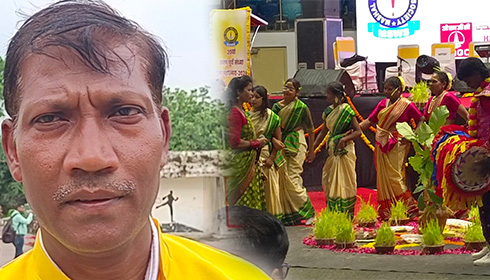
Government’s Sickle Cell Anemia Initiative in Tribal Areas Earns Widespread Praise
The Indian government's efforts to combat sickle cell anemia in tribal areas have received widespread acclaim, with many applauding the Union Health Ministry's large-scale screening initiative. The program, which targets the tribal populations across India, aims to improve healthcare in regions that are often underserved.
At an event organized by the Mashal Social Welfare Society, held at Delhi's Talkatora Stadium, many participants shared their support for the initiative. Dr. Mohan Baraik led the event, which marked the 20th anniversary of the organization.
Among the attendees was Mr. Gangaram Gagrai, a prominent resident of Kolhar, Jharkhand. Speaking at the event, Gagrai praised the government’s efforts, but he also stressed the need for better coordination between government representatives and citizens. He emphasized that senior officials should prioritize not only the sickle cell anemia initiative but also other healthcare programs.
Sickle cell disease is a genetic blood disorder that primarily affects the tribal population in India. The disease causes severe anemia, pain crises, stunted growth, and can affect vital organs such as the heart, lungs, kidneys, and brain. India is home to the world’s largest tribal population, comprising 8.6% of the total population—about 67.8 million people, according to the 2011 Census.
The Ministry of Health and Family Welfare (MoHFW) has identified sickle cell disease as one of the top ten health issues disproportionately affecting tribal communities. In response, the ministry launched efforts under the National Health Mission (NHM) in 2016, focusing on hemoglobinopathies, including both thalassemia and sickle cell disease. Comprehensive guidelines for the prevention and management of these conditions were developed, and states were provided with funds to support screening and management programs.
Although the COVID-19 pandemic slowed progress in prevention through screening and public awareness campaigns, the need for a dedicated scheme or mission to address detection, management, and education on sickle cell disease is now more pressing than ever.
The government’s initiative is a critical step toward improving healthcare in tribal regions, offering hope for better management and prevention of this debilitating disease. With continued efforts and increased focus, India can make significant strides in combating sickle cell disease, particularly within its most vulnerable populations.